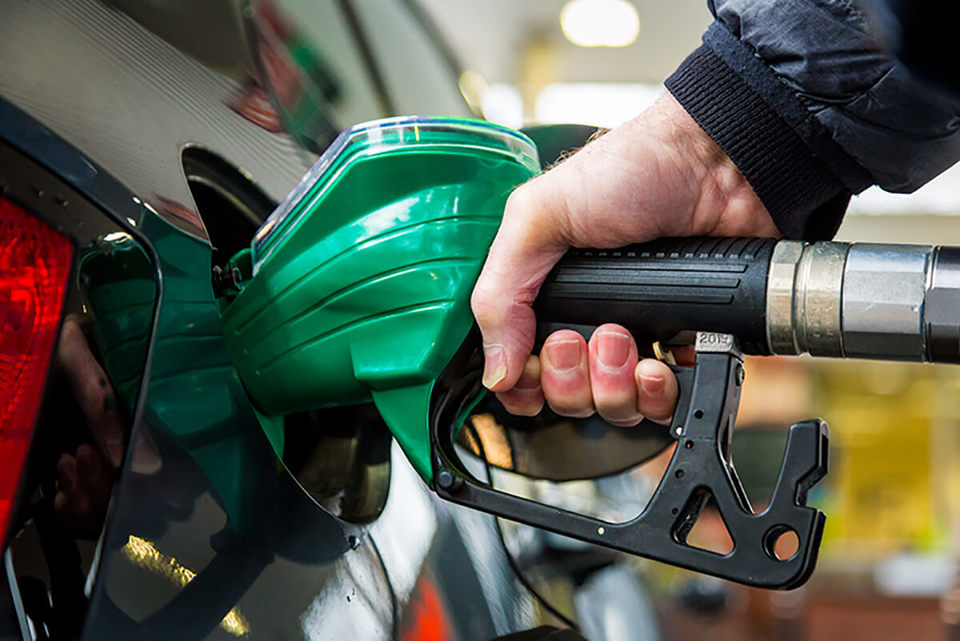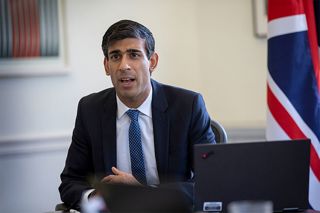The Chancellor’s decision to cut fuel duty by 5 pence per litre (ppl) has been broadly welcomed by the fleet and leasing industry, but many have questioned whether he went far enough.
Paul Hollick, chair, Association of Fleet Professionals (AFP), said: “The Spring Statement really does serve as a point of focus for the rising costs that all fleets are currently facing, especially given poorer growth and inflation forecasts.
“Literally every part of the cost equation that goes into operating cars and vans are facing substantial rises.
“While the Chancellor has taken some actions that will serve to offer some mitigation, such as the reduction in fuel duty, none of these will really alter the overall direction of travel.
“The AFP view, in general, is that businesses should look to proactively manage their way through this situation and, for many, that will ultimately mean speeding up EV adoption, accessing permanently lower fuel and overall running costs.
“Also, in the light of ongoing electrification, we were hoping to see more news on both the post-2024-25 benefit in kind tables and the road charging schemes that it appears will replace diesel and petrol fuel and vehicle excise duty - but it seems the Government is not yet ready to unveil its plans.”
Philip Nothard, insight and strategy irector at Cox Automotive, said: "We welcome any moves from the Government which reduces costs at the pump for the motorist and for businesses like ourselves who have significant transportation operations.
“We would have welcomed bigger cuts too, as the automotive industry has faced extremely challenging conditions during the last 12 months with the well-documented supply issues affecting new car production."
Cox Automotive says that if the UK Government had made a more significant cut in fuel duty and followed the example of the Irish government, which confirmed last week that excise duty on fuel in Ireland would be reduced by 20 cents per litre on petrol and 15 cents per litre on diesel, the cost of a 60-litre tank of petrol would have been cut by £10 and diesel by £7.50.
Instead, savings on a tank of fuel in the UK will be around half that amount following the 5ppl fuel duty cut.
"It is disappointing that the UK Government didn’t go further,” he said. “Logistics businesses were already feeling the effects of recent headwinds, which has done little to allay their long-term concerns.
“The Government's decision to not make deeper cuts in fuel price could lead to price inflation across the entire transportation and logistics industry which is already facing several challenges ahead.”
Matthew Walters, head of consultancy services and customer value at LeasePlan UK, says that the fleet industry is well placed to overcome global economic challenges.
“Not only did we account for half of all new car sales in 2021, but we are also leading the adoption of the cleaner technologies that will define motoring’s future,” he said.
LeasePlan UK also welcomed Sunak’s decision to cut the main rates of fuel duty by 5p to 52.95p a litre.
“With pump prices at record highs – and rising – motorists needed something more than the rate freeze that has persisted for over a decade now,” said Walters. “In this respect, the Chancellor has delivered.
“However, as welcome as this duty cut is, it is likely to offer only limited relief to squeezed budgets. The average cost of a litre of petrol has risen by more than 5p over the past week – if that trend continues, the Chancellor’s discount could effectively be wiped out within days.”
There was no update from the Chancellor on company car tax rates beyond 2024/25, Walters says that, previously, Sunak had a good record on warning businesses and motorists of upcoming benefit-in-kind (BIK) tax rates.
However, he said: “That record is starting to tarnish. The rates for 2025-26 and beyond still haven’t been confirmed – meaning that fleets entering into three- or four-year contracts today are unable to plan properly for the future.”
Jon Lawes, managing director at Novuna Vehicle Solutions, agrees. Welcoming the cut in fuel duty, he said: "What UK businesses require now however, is greater clarification on future benefit in kind rates beyond 2025, which will need to be confirmed in the autumn Budget, if not before."
He added that addressing the cost of EV public charging and plans to ramp up the availability of public charge points will be welcome when the EV Infrastructure Strategy is released.
However, he said: "There is money already on the table that local government could be doing more to use.
"We are calling for local Governments to address the EV infrastructure shortage and use their budgets to increase the number of charging points across the UK to support to the UK’s rapidly growing EV market.”
David Bushnell, director of consultancy and strategy at Fleet Operations, says that oil price volatility shows few signs of abating, so fleets must find other ways to ease the financial pressure.
"With the business case for electrification growing ever stronger, fleet fuel strategies should continue to be reviewed, along with cost control measures that can help ease the financial burden – from effective vehicle maintenance and fuel discount structures to more effective mobility management," he said.
"The Chancellor may have scrapped VAT on home energy-saving measures such as insulation, solar panels and heat pumps but has offered fleet operators nothing in the way of any new incentives to encourage EV take up which may have helped balance out the CO2 impact of the fuel duty rise."
Louis Rix, chief operations officer and co-founder of car finance platform CarFinance 247, also suggested that the fuel duty cut doesn’t go far enough.
“This will be a drop in the ocean for the average consumer,” he said. “Fuel prices won’t fall to anywhere near affordable, even with the cut.
“The Chancellor has also left fuel station owners in a difficult position; they may be struggling financially too, which could result in consumers seeing no benefit whatsoever from the fuel duty cut.”
He continued: “In today’s statement, the Chancellor needed to implement much more severe cuts to fuel duty to make a difference to Brits’ escalating fuelling costs.
“Driving is just one aspect of a consumer’s personal finance; Sunak’s decision to stick with plans to increase tax contributions by 1.25 percentage points will still be a crippling hit for many workers.
“Reports that the average adult will spend £1,000 more per year in taxable income leave many facing critical choices at home between heating, driving, and even food.”
Mike Hawes, chief executive of the Society of Motor Manufacturers and Traders (SMMT), said: “Measures to help address the accelerating cost of living are welcome but business also needs support, especially on energy, investment and skills.
“Time is of the essence as the industry is not yet in recovery, but costs are increasing rapidly, undermining U.K. competitiveness.
“Government could have acted today to help automotive manufacturers alleviate soaring business energy costs and encourage investment.”
He added: “We look forward to working with Government on its proposals for business investment and, especially, super deductions which are highly valued.
“Manufacturers have committed £10.8 billion to UK EV and battery R&D and production in our first ‘electric decade’.
“Driving even more investment will be essential if we are to supercharge automotive manufacturing - and the jobs and economic growth it creates - during its biggest transformation in 100 years.”
David Brennan, CEO at Nexus Vehicle Rental, says that, while the fuel duty cut may offer some relief to individuals and businesses operating their fleets, it is estimated to only be around £3.30 per tank.
“This clearly shows that the Government recognises the need to support individuals and businesses dealing with the rising costs of living, however we acknowledge that this is just one challenge that the industry is currently facing, alongside a great shortage of vehicles and parts that are making manufacture increasingly difficult,” he said.
“It is clear that the government continues to sign-post us towards a green future with the announcement of relief on energy saving measures, with 0% VAT on all energy saving materials, however it was disappointing to not hear of any further support offered to the electric vehicle industry.”
As we move ever-closer to the 2030 ban on the sale of new petrol and diesel vehicles, Brennan says that there is still more that needs to be done to support EV manufacturers to ensure they are more affordable for businesses.
“Once again, I must reiterate that enhanced financial support is still needed from the Government to increase affordability of the vehicles and ensure there is suitable infrastructure in place for businesses that decide to make this important transition.”
Nick McClellan, managing director at RAM Tracking, says the fuel duty cut could amount to a saving of around £87 per vehicle per year, based on an annual mileage of around 13,500 miles.
“This reduction is badly needed for drivers and is unsustainable for many small and medium sized business,” he added.
The National Franchised Dealers Association (NFDA) says that the Chancellor has taken a number of positive steps, however, the measures announced “fall short” of supporting businesses as they recover from the pandemic and face current challenges such as “soaring costs”.
On 1 April, the business rates relief will drop from 66% to 50%; additionally, the maximum each business can claim will fall from £2 million to £110,000.
For franchised dealers with more than a handful of sites, this means most of them will pay full rates. The business rates multiplier, meanwhile, will be frozen for 2022/2023.
Sue Robinson, NFDA chief executive, said: “Whilst it is positive that the Government recognised the need to extend the business rates holiday, it is extremely disappointing that the claim rate has been reduced as this will exclude most dealer groups.”
As previously planned, National Insurance for employers and employees will increase by a combined 2.5% from April 2022.
However, the Chancellor has announced the Government will increase the level at which employees start paying national insurance by £3,000 to £12,570.
Robinson said: “Increasing the tax burden on businesses sends the wrong message at the wrong time.
“The rise in National Insurance is a massive blow to small and medium sized franchised dealer groups as they deal with a number of significant challenges including loss of earnings due to vehicle stock and supply issues, as well as staff shortages due to Brexit and Covid-19”.
The Chancellor has stopped short of cutting headline rates of tax for now, despite calls to protect low-and-medium income households from the rising cost of living.
However, he has promised a 1p cut in the rate of Income Tax in 2024 as part of a new long-term tax plan.
Richard Godmon, tax partner at accountancy firm, Menzies LLP, said: “Businesses will like the idea of a new tax plan, providing a long-term view of the fiscal landscape.
“This could help them to plan to make investments and reduce transactional pressures on their business activities.
“However, there isn’t much detail on what the plan will look like, just some promises to extend R&D tax relief and cut Income Tax, so we will have to wait and see.”
He added: “With inflation heading for double digits, doing nothing now was simply not an option for the Chancellor politically.
“The decision to raise the threshold for National Insurance Contributions by £3,000 to £12,570 is a positive step, which means that the planned 1.25% increase, (due to take effect from the start of next month) will have a reduced impact on low earners.
“Cutting fuel duty by five pence is a significant step that will help businesses and households that have been struggling to meet the cost of rising petrol and diesel prices.
“The recent dip in the wholesale prices means that further market-driven reductions in fuel costs are also in the pipeline.”
The British Vehicle Rental and Leasing Association (BVRLA) has welcomed the Chancellor’s announcement that he wants to cut and reform taxes on business investment.
Capital allowances, it says, can play a crucial role in supporting the transition to zero emission road transport and the BVRLA continues to campaign for a regime that treats rented and leased assets fairly.
BVRLA chief executive, Gerry Keaney, said: “It is great to see that the Government is now open to new ideas on capital allowances. This reform could play a massive role in driving fleet and charging infrastructure investment and we will be pushing for rental and leasing to be treated fairly as an efficient and effective means of financing new assets.”
Spencer Halil, chief commercial officer at Alphabet says that the Chancellor’s fuel duty cut highlights the importance for fleet managers to use this time to look at electrifying their fleets so they can benefit from lower fuel whole life costs.
However, he said: "More support is needed from the Government to help companies navigate the move to lower emission vehicles for longer-term sustainability both financially and for carbon emission targets.
"The fleet industry is still lacking clarity on what will happen to benefit in kind taxes following 2024/25, which we hope to see the Chancellor address in his autumn Budget.”
Peter Golding, managing director of FleetCheck, added: “With inflation now above 6% and fuel prices having risen exponentially in recent months, fleet running costs are unavoidably increasing and the actions of the Chancellor in reducing fuel duty, while welcome, amount to little more than tinkering.
“I think the underlying message for fleets here is a small political one. Following the pandemic, when the Government stepped in and took a high degree of responsibility for keeping the economy on a sure footing, we’re now returning to a more traditional situation when interventions will be much more limited.
"Businesses and their fleets are going to have to mitigate rising costs through more effective management rather than looking for more dramatic forms of external help.”























Login to comment
Comments
No comments have been made yet.